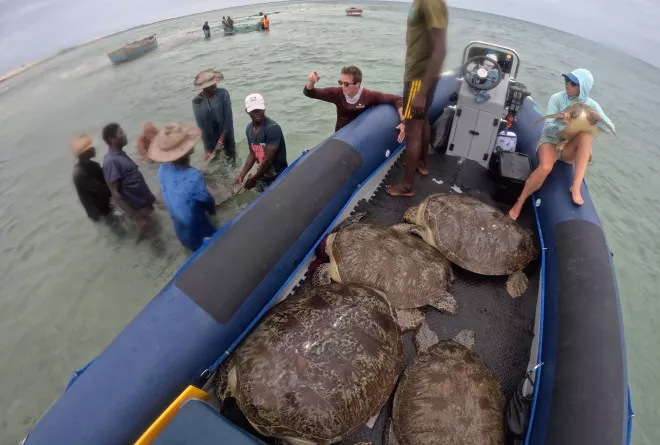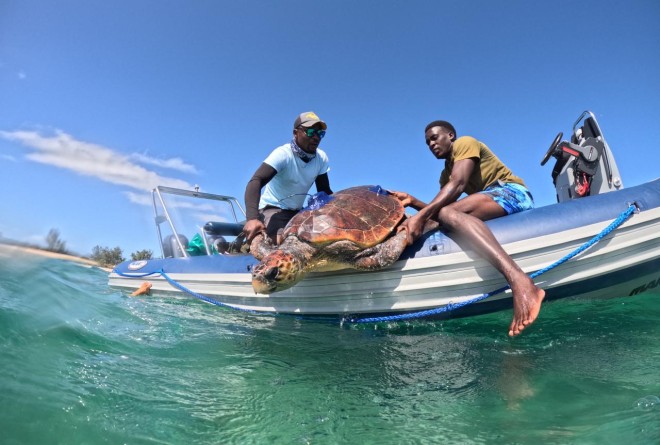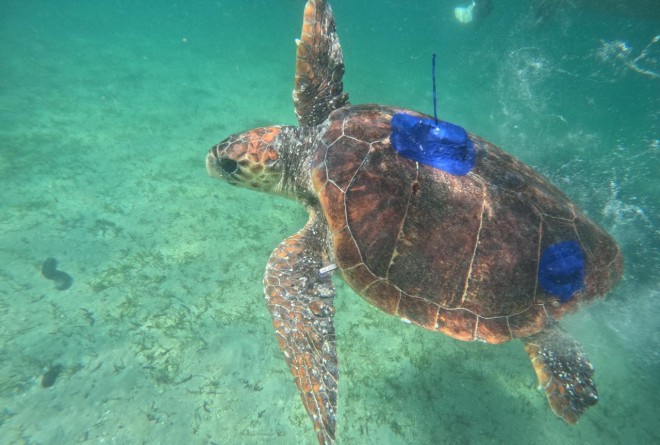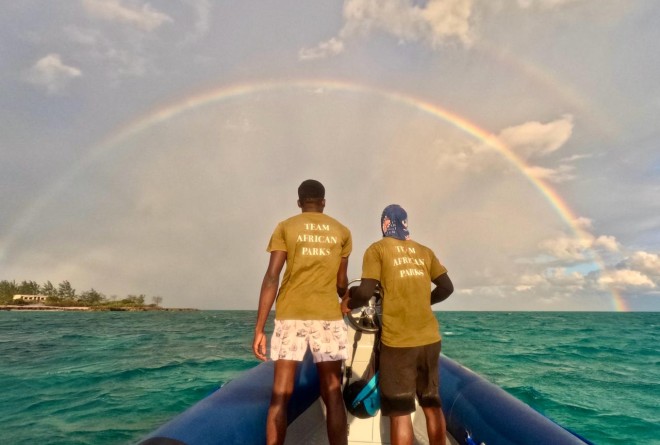During the week of April 8, 2024, the conservation team in Bazaruto Archipelago National Park, Mozambique, undertook a large-scale turtle tagging exercise to understand how turtles navigate the ocean amidst fishing grounds. Turtles getting caught in fishing nets is one of the main types of human-wildlife conflict in the protected area. This is damaging in several ways: Fishers have to haul up to 20 turtles out of a single net – an exhausting task considering a single green turtle can weigh up to 150 kg – nets are destroyed in the process, and the animals drown if they are not released quickly enough.
In collaboration with local fishers, the Bazaruto team opportunistically tagged the three most commonly encountered turtle species – mainly green turtles, a few loggerheads and one hawksbill turtle. More than 40 turtles were tagged in total, using a mix of satellite, acoustic, and flipper tags.
While they look slightly bulky, these tags ensure minimal interference with the turtles’ natural behaviors. They are securely attached with epoxy, fiberglass, and steel putty, and provide short-term detailed information (satellite tags) as well as decade-long signals (acoustic and flipper tags), which help paint a detailed picture of turtle habitats and behaviors, and ultimately inform management decisions.
Bazaruto Archipelago, managed by African Parks in partnership with the National Administration of Conservation Areas (ANAC) since 2017, is one of the most important marine sanctuaries along the East African coastline, with a range of critical habitats for many rare and endemic species. Bazaruto is the only known place in the western Indian Ocean where all five regionally resident turtle species nest, and it is also home to the last viable population of the East African dugong.
Your Support Goes a Long Way
At African Parks we are working everyday to protect Africa's last wild landscapes. By donating to us, you are making a difference and are giving hope to people and wildlife across the continent.
Donate © Natalie dos Santos & Andy Coetzee | Green turtle being released after tagging
© Natalie dos Santos & Andy Coetzee | Green turtle being released after tagging © Natalie dos Santos & Andy Coetzee | Loggerhead turtle ready for release
© Natalie dos Santos & Andy Coetzee | Loggerhead turtle ready for release  © Natalie dos Santos & Andy Coetzee | Loggerhead turtle with flipper, satellite and acoustic tag
© Natalie dos Santos & Andy Coetzee | Loggerhead turtle with flipper, satellite and acoustic tag © Natalie dos Santos & Andy Coetzee | John and Eduardo, part of Bazaruto’s conservation team, who helped with tagging Bazaruto
© Natalie dos Santos & Andy Coetzee | John and Eduardo, part of Bazaruto’s conservation team, who helped with tagging Bazaruto